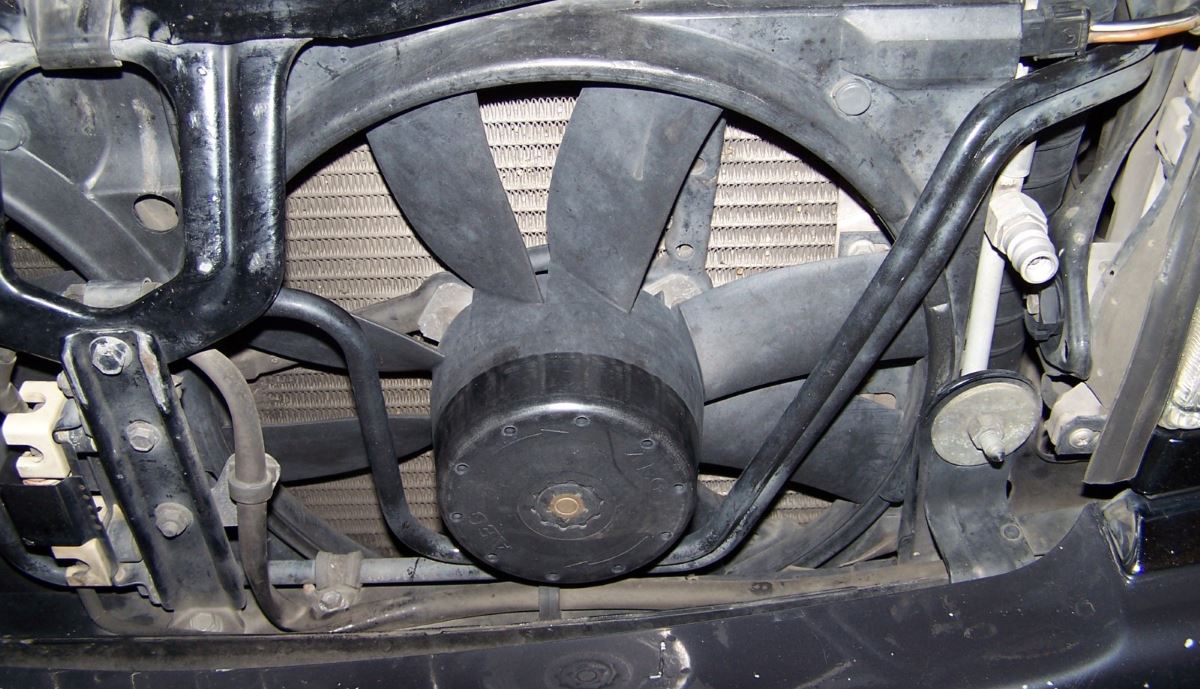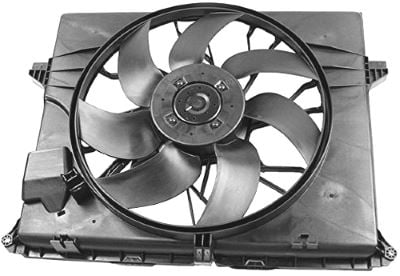How is the radiator fan important to your car’s cooling system?
The cooling system is an essential part of almost any vehicle. Its job is to regulate your car’s running temperatures by distributing coolant around the engine. Coolant picks up heat from the engine, meaning it will need to be cooled down in the radiator before it is introduced to the engine again. This is where the radiator fan comes in. When the engine is idling or driving slowly, the radiator cooling fan will increase in speed. This will allow heat to be dissipated from the coolant at a faster rate.
Most of the time, these fans will be powered by electric motors. The fans are mounted between the radiator and the engine, allowing for air to easily be introduced to the radiator.
When should the radiator cooling fan be replaced?
The radiator cooling fan is not a scheduled maintenance item. This means that it shouldn’t be replaced unless it fails. In most cases, a properly maintained radiator fan will last between eight and ten years.
When the radiator fan fails, it should be replaced as soon as possible. This is because without a cooling fan to help remove heat from the engine, your car is more likely to overheat and cause damage to important engine components. Since engines are expensive to replace or repair, it is not worth driving with an overheating engine, especially for prolonged periods of time, especially in city stop / start driving.
Symptoms of a damaged radiator cooling fan:
When the radiator fan fails or starts to fail, you may notice the following symptoms:
- Rising engine temperature – Perhaps the most obvious symptom of a failing radiator fan. When the fan stops working, engine temperatures will gradually rise. This will be particularly noticeable when your engine is at idle or slow speeds.
- No whirring noise from the engine Usually, the radiator fan is audible when it is running. If you can not hear a whirring noise coming from the engine when the engine is hot, the fan may not be working correctly.
- Lower coolant levels – Your may notice that your car’s coolant is slowly depleting. This can happen due to coolant boiling under high temperatures and evaporating.
Other causes of an overheating engine
Can you drive with a broken radiator cooling fan?
When the fan fails, it is best not to drive your car unless absolutely necessary. However, when you do drive, be sure to keep an eye on your engine temperature gauge. High RPMS and increased load on the engine will cause the temperature to rise quicker, as well as prolonged idling and slow speed driving. Therefore, it is safest to drive conservatively and avoid idling if possible . This will allow heat to be dissipated through the radiator with normal external air flow without the additional help of the fan.
Radiator Cooling Fan Replacement in Hamilton
Is your car in need of a new radiator cooling fan? If so, we can help! At Grimmer Motors, our team of experienced mechanics can quickly repair all sorts of cooling system faults. Upon determining that the radiator cooling fan is the cause of the issue, we can remove the defective unit and install a new unit for you. This will help the engine to maintain a healthy temperature and potentially increase its lifespan.
For radiation cooling fan replacement in Hamilton, contact Grimmer Motors today!


